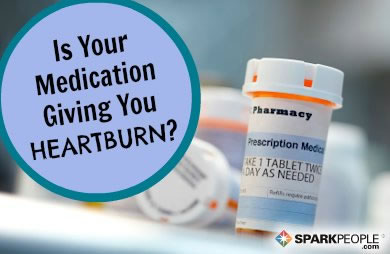|
Last summer I shared about my grandmother and provided information regarding an opportunity to participate in The Alzheimer's Disease Neuroimaging Initiative Grand Opportunity (ADNI-GO) Study. Because of that blog, we received an interview opportunity with Dr. Michael Rafii, MD, PhD to learn more about groundbreaking Alzheimer’s disease (AD) research. Dr. Michael Rafii, MD, PhD, is co-director of the Memory Disorders Clinic at UCSD Perlman Ambulatory Care Center in La Jolla, California and Assistant Professor of Neurosciences at the University of California, San Diego. He is also the Associate Medical Core Director of the Alzheimer's Disease Cooperative Study (ADCS) specializing in cognitive disorders, including dementias such as Alzheimer's Disease. We focused our questions on what we care most about – healthy eating and exercise. We think you will find his responses very applicable especially if you or someone you love may be at increased risk of developing Alzheimer's disease. dailySpark: There has been some research suggesting that caffeine could be beneficial for reducing protein levels linked to Alzheimer's disease. Should people with a family history of Alzheimer's follow different caffeine intake recommendations? Dr. Rafii: There have been many headlines about caffeine and Alzheimer's disease. Many of those headlines suggested that coffee might actually cure Alzheimer's disease. That conclusion is more than a bit premature and will be difficult to reconcile with the vast number of heavy coffee drinkers progressing through advanced stages of the disease. One of the studies was conducted at the Alzheimer's Disease Research Center (ADRC) in Tampa, Florida with a study published last year in the Journal of Alzheimer's Disease. The study included 55 mice genetically altered to develop memory problems mimicking Alzheimer's disease as they aged. After behavioral tests confirmed the mice were exhibiting signs of memory impairment at age 18 to 19 months – about age 70 in human years – the researchers gave half the mice caffeine in their drinking water. The other half got plain water. The Alzheimer's mice received the equivalent of five 8-oz. cups of regular coffee a day. That's the same amount of caffeine – 500 milligrams. At the end of the two-month study, the caffeinated mice performed much better on tests measuring their memory and thinking skills. In fact, their memories were identical to normal aged mice without dementia. The Alzheimer's mice drinking plain water continued to do poorly on the tests. In addition, the brains of the caffeinated mice showed nearly a 50-percent reduction in levels of beta amyloid, the substance forming the plaques that are a hallmark of Alzheimer's disease. Other experiments by the same investigators indicate that caffeine appears to restore memory by reducing both enzymes needed to produce beta amyloid. The researchers also suggest that caffeine suppresses inflammatory changes in the brain that lead to an overabundance of beta amyloid. While some correlation between caffeine and improved cognition has been shown in other studies as well, there are still some major issues, namely why do long time coffee drinkers still develop Alzheimer’s Disease. Certainly if a person has been drinking coffee for a long time and enjoys it, they can continue drinking it, but they should not assume that their risk of developing AD is being reduced because of it. Nor should someone with AD assume that by starting to drink coffee regularly, they will somehow treat their AD symptoms. dailySpark: Is there a link between heart disease and diabetes and the development of Alzheimer's disease? Dr. Rafii: The risk of developing Alzheimer's Disease or Vascular dementia appears to increase as a result of many conditions that damage the heart or blood vessels. These include high blood pressure, heart disease, stroke, diabetes, and high cholesterol. Some autopsy studies show that as many as 80 percent of individuals with Alzheimer's disease also have cardiovascular disease. A longstanding question is why some people develop hallmark Alzheimer plaques and tangles but do not develop the symptoms of Alzheimer's. Vascular disease may help researchers eventually find an answer. Autopsy studies suggest that plaques and tangles may be present in the brain without causing symptoms of cognitive decline unless the brain also shows evidence of vascular disease. Many experts believe that controlling cardiovascular risk factors may be the most cost-effective and helpful approach to protecting brain health. dailySpark: Are there specific diet and exercise recommendations that would help prevent the development of Alzheimer's disease? Dr. Rafii: Regular physical exercise may be a beneficial strategy to lower the risk of Alzheimer's Disease and vascular dementia. Some evidence suggests exercise may directly benefit brain cells by increasing blood and oxygen flow. Even stronger evidence suggests exercise may protect brain health through its proven benefits to the cardiovascular system. Because of the known cardiovascular benefits, a medically approved exercise program is a valuable part of any overall wellness plan. Like exercise, diet may have its greatest impact on brain health through its effect on heart health. The best current evidence suggests that heart-healthy eating patterns, such as the Mediterranean diet, also may help protect the brain. A Mediterranean diet includes relatively little red meat and emphasizes whole grains, fruits and vegetables, fish and shellfish, and nuts, olive oil and other healthy fats. dailySpark: Is there a way to prevent the development of Alzheimer's disease? Dr. Rafii: It's a question that continues to intrigue researchers and fuel new investigations. There are no clear cut answers yet — partially due to the need for more large-scale studies — but promising research is under way. A number of studies indicate that maintaining strong social connections and keeping mentally active as we age might lower the risk of cognitive decline and Alzheimer's. Experts are not certain about the reason for this association. It may be due to direct mechanisms through which social and mental stimulation protect the brain. Certainly a heart healthy diet and exercise are also thought to be beneficial. The Bottom Line The latest Alzheimer's Disease research suggests there are things you can do to reduce your risks of AD.
Are your daily habits helping to make a positive difference in your risk for Alzheimer's disease? What are some ways busy people can stay socially connected and mentally stimulated on a daily basis? |
More From SparkPeople
|





.jpg)









